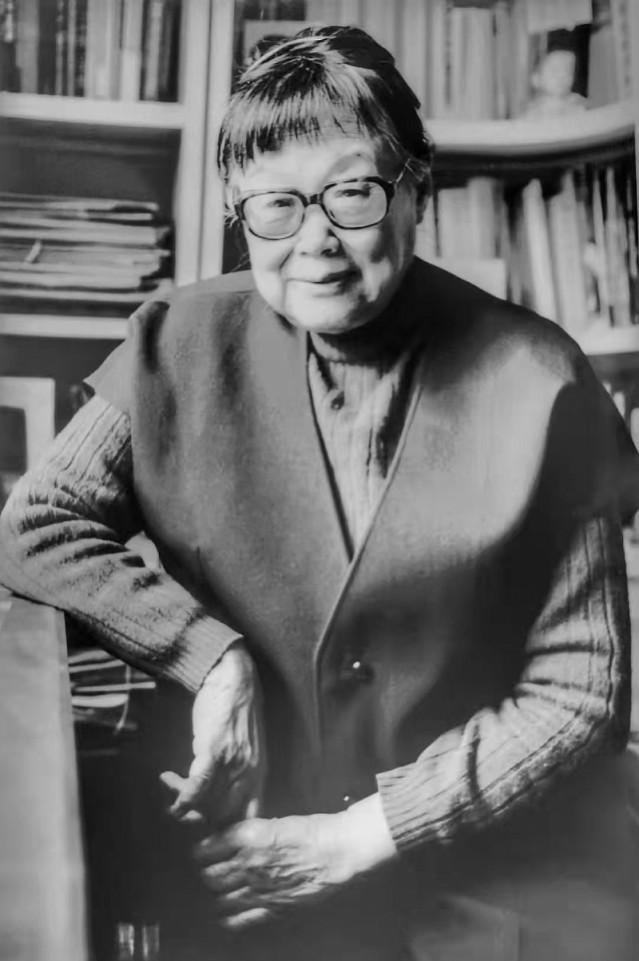Nandu reporter learned that Mr. Zheng Min, a famous Chinese poet, poetry critic and scholar and professor at the School of Foreign Chinese Literature of Beijing Normal University, died in Beijing at the age of 102 due to illness at 7 o'clock on January 3, 2022.
Zheng Min's daughter and poet Tong Wei posted a message in the circle of friends: "Mother Zheng Min drove to Hexi at 7:01 today. Thank you all for your continued love for her! ”

Zheng Min, born on July 18, 1920, is a native of Minhou, Fujian. In 1939, he was admitted to Southwest Union University, where he studied philosophy and graduated in 1943. During his studies at southwest United University, he began to write poetry, and began to publish poetry works in 1943, which was highly affirmed by the poetry critics at that time. In April 1949, she published her first collection of poems, Collected Poems 1942-1947, published by the Cultural Life Publishing House in Shanghai, which established her important position in the history of new Chinese poetry. In 1948, he went to Brown University in the United States and received a master's degree in English literature. In 1955, he returned to his homeland and worked at the Institute of Literature of the Chinese Academy of Social Sciences (formerly known as the Chinese Academy of Sciences) to engage in The Study of English Literature. In 1960, he was transferred to the Department of Foreign Languages of Beijing Normal University to teach.
Mr. Zheng Min has devoted his life to the creation of new Chinese poetry, the study of Chinese and Western poetry, the study of contemporary Western philosophical thought, poetry translation and education and teaching. From the 1940s to the 21st century, her creations have gone through 80 years of ups and downs, and her creative vitality has been enduring. After the reform and opening up in 1979, Mr. Zheng Min's poetry creation has a new brilliance of life, and he has published poetry works such as "Seeking Collection" (1986, which won the Third National Outstanding New Poetry Award of the Chinese Writers Association), "Heart Image" (1991), "Morning I Pick Flowers in the Rain" (1991), "Zheng Min's Poetry Collection (1979-1999)" (2000), and translated and published "Selected Contemporary American Poetry" (1987).
Mr. Zheng Min has written a large number of poetry works in his lifetime, especially since the new era of reform and opening up, as an important poet of the "Nine Leaf School", her works have had a broad and far-reaching impact on the development of new Chinese poetry. In 2006, Zheng Min won the "Poet of the Year Award" from the CCTV New Year Poetry Conference, and in 2017, he won the Poetry Creation Award of the 6th Zhongkun International Poetry Award.
It is a genre of poetry with modernist tendencies in the late Period of the War of Resistance Against Japanese Aggression and the War of Liberation. The members include Xin Di, Chen Jingrong, Tang Qi, Tang Xiang, Mu Dan, Zheng Min, Du Yunxie, Yuan Kejia, Hang Youhe and nine others. In 1981, he published a collection of poems, the Nine Leaves Collection, from which the "Nine Leaves Poetry School" got its name. Mr. Zheng Min drove the crane to the west, which meant that the last member of the "Nine Leaf Poetry Sect" also passed away.
The School of Foreign Chinese Literature of Beijing Normal University commented on Mr. Zheng Min's outstanding artistic achievements in an obituary released on the 3rd: "Mr. Zheng Min's poetry pursues sensibility and rationality, and the high unity of 'poetry' and 'thinking', integrating her care for human nature and her perception of life into poetic philosophical thinking, and her poems are closely related to the vicissitudes of the times and the fate of Chinese intellectuals." In terms of the aesthetics of poetry creation, her poems focus on the exploration of the heart, showing the confession of the soul, dialectical thinking, beautiful and complex imagery, which has brought major breakthroughs to contemporary poetry. Her exploration of contemporary Western philosophical thought, her thinking on new poetry and Chinese, her concern for the fate of mankind, and her concern for issues such as science and humanistic education all show the courage, responsibility and noble sentiment of a Chinese poet and intellectual to seek truth. ”
Nandu reporter Huang Qian